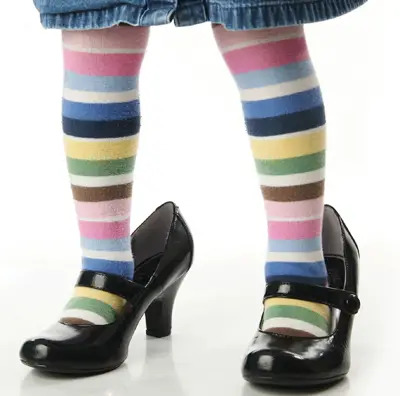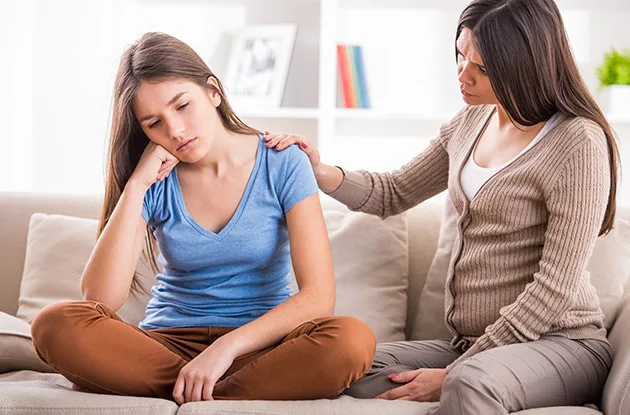A mom of two, confronted by her own mortality after a cancer scare, shares her worries about being there for her children for the long haul and offers advice for other parents on how to cope with their own death anxiety.
When my daughter was born three years ago, life as I knew it changed in many wonderful and scary ways. There was the anxious fluttery excitement of being a new parent, learning to decipher the hungry cry from the tired cry, and figuring out the best way to tackle a diaper blowout. There was the overwhelming bliss of early morning baby snuggles and feeling an even stronger bond with my husband through this little creature we’d created. And over all of that was the realization that life was no longer about me. It was now about this tiny person, and it was up to me to keep her safe and happy for a good long time.
Six months into my new life as a mommy, my dermatologist informed me that the little spot he’d removed from my arm the week before was melanoma. In the frenzied weeks that followed – of surgery that left my arm looking as if someone had taken a bite out of it, coupled with bloodwork and chest X-rays to make sure it wasn’t elsewhere in my body – I was lucky. We’d caught it early; it hadn’t spread. Physically, as long as I became a little more sun-savvy, I would be fine. Emotionally…well, that’s a different story entirely.
At least two nights a week, I find myself awake in bed at all hours, terrified that the cancer will come back. I worry that I’ll die and my kids will grow up without a mom. Any new mark on my body, any ache or pain, sends me running to the doctor in a flurry of anxiety. My husband has pleaded with me to stop self-diagnosing on the Internet, a place where it seems that all roads lead to cancer or some other horrifying, fatal illness.
 I’ve realized that I’m not alone in my fear. Amy Metcalfe, a parent of one with another on the way, travels for work and confided in me that she spends most of her flight willing the plane not to crash, because how could her family manage without her? Another mother confessed that these feelings amped up for her when the birth of her son was followed three months later by the death of her own mother. The catalysts may be different, but the resulting anxiety is the same. As parents, we’ve got these little people who need us to live and be in their lives for the next, let’s be realistic, 25 years at least. How on earth do we guarantee the terms of this lifelong contract?
I’ve realized that I’m not alone in my fear. Amy Metcalfe, a parent of one with another on the way, travels for work and confided in me that she spends most of her flight willing the plane not to crash, because how could her family manage without her? Another mother confessed that these feelings amped up for her when the birth of her son was followed three months later by the death of her own mother. The catalysts may be different, but the resulting anxiety is the same. As parents, we’ve got these little people who need us to live and be in their lives for the next, let’s be realistic, 25 years at least. How on earth do we guarantee the terms of this lifelong contract?
The short and sad answer is that we can’t. There’s always the possibility that we’ll get hit by a bus tomorrow. The good news is, that apart from the freak-accident scenario, there are simple steps you can take towards living a long, happy, and healthy life. And emotionally, there are coping mechanisms out there to help you deal with the self-preservation instinct and the feelings it can stir up. I am by no means an expert, nor am I a therapist, but here are some of the things that have helped me.
The Practical Stuff
Let the lifelong commitment to your kids serve as a wake-up call for you to take better care of yourself. It’s no secret that exercise and eating right are two of the best ways to stay healthy and live longer. And while it can be tough to choke down those vegetables or log those miles on the treadmill, get motivated by picturing your future self walking your daughter down the aisle or chasing your grandkids around. If it’s been too long since you’ve had a routine medical check-up, make an appointment. If you have a pre-existing health concern, be proactive in managing it. Before my diagnosis, I’d never given sunscreen much thought unless I was poolside or on an island getaway. Now I don’t leave the house without it, ever. I avoid peak sun hours and I walk on the shady side of the street. Even though I know deep down that none of us know when the end will be, I rest a little easier knowing that I’m taking an active stance to stay healthy and melanoma-free.
Once you’re secure in your knowledge that you’re doing everything in your power not to die, get your affairs in order…just in case. Create an estate plan and choose a legal guardian for your children, in the event that you and your husband meet your demise before they reach adulthood. Yes, it’s morbid and certainly not something any of us want to think about. After all, who (really) is good enough to parent your child but you? However, knowing these logistical – and important – things are in place can bring a measure of comfort. Once you’ve established a guardian, make sure to inform him or her of your expectations for your kids, including the hopes you have for them and the values you hold dear. Take the time to document these wishes as well, and attach a copy to your will. Make sure you take care of the financial stuff, too: Name someone as trustee of the kids’ assets (as in any money or property they’ll inherit should you die); and consider obtaining life insurance policies for you and your spouse.
The Emotional Stuff
As parents, we’re already stressed by the demands of raising children. Worrying over your own mortality in addition can most certainly give rise to a whole host of unpleasant emotions. Jeff Gurner, a father of one who works in Manhattan, admits, “I’ve got the ‘God-forbid-anything-should-happen-to-me-because-it-totally-could’ floating beneath the surface 24/7, and it’s maddening.” The most important thing to remember here is that there’s no quick fix. It will take some time, and the fear will never go away completely, but it will get easier to manage.
Talking about your worries is one of the best ways to deal with them. You may choose to go the professional route (lucky for us, there’s a whole subset of psychologists and therapists out there trained in the ways to manage death anxiety). If your stress is all-consuming, having a negative impact on your kids, or affecting your ability to lead a happy and emotionally rewarding life, definitely consider seeking out a professional.
If, however, your feelings are more subdued, creeping up on you now and again, a close friend would be a great – and much cheaper – option. And while a listening ear is always a comfort, a supportive friend might also help you to look at things from a new vantage point. My friend Allyson, for instance, pointed out during one of my “what-if?” moments that death is often a process in itself, and doesn’t happen instantly. I was oddly comforted by this because I realized that even if the melanoma does come back, I won’t just vanish from my kids’ lives in a puff of smoke. There might be biopsies and disease-management ahead, but there would also be time.
Explore various ways to ease your anxiety. If you find one that works for you, rely on it as needed. It may be something as simple as reminding yourself that you’re in the same boat as every other parent out there. You may find comfort through meditation or religion. Or it may simply be a question of reprioritizing your life to focus on things that matter most, like family or pursuing some unrealized dream.
It can also be helpful to read a a book on the subject. Irvin D. Yalom’s Staring at the Sun offers insight into why humans suffer from death anxiety, plus methods to help overcome it. While your feelings may continue to haunt you off and on over your lifetime, having an arsenal of coping strategies will make facing them a little easier every time.
Finally (and most important!), let your worries over needing to not die spur you to engage in the business of living. Embrace each new day simply because you can. Find the silver linings in the clouds and a little bit of joy in the everyday monotony of toy clean-up, meal-making, and diaper-changing. Enjoy your kids, tell them how much you love them, and make a little more time to laugh and play. Tomorrow will never be a known quantity. Accept it. And in the meantime, today can be exactly what you make it, surrounded by the little people who make you glad to be alive.
Cora Waring is a freelance writer and full-time mom who lives with her husband and two kids just outside of NYC.
Also see: How Your Stress Affects Your Kids
8 Tips for Feeling Happier During an Unhappy Time





















